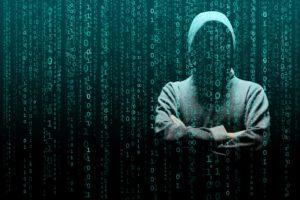In the digital realm, are those we meet really friends? An HCP’s point of view for staying safe on social media.
 Some people take to social media like a fish to water. Professor Partha Kar has been a prolific user of this medium while doing a national role. He’s been asked to talk about being safe online, and these are my notes from one of those talks. By Sue Marshall
Some people take to social media like a fish to water. Professor Partha Kar has been a prolific user of this medium while doing a national role. He’s been asked to talk about being safe online, and these are my notes from one of those talks. By Sue Marshall
“Social media is seen by some as a ‘dark art’ while others see it as a welcome disruptor, challenging the accepted norms. It can be a bit ‘odd out there’, and I can tell you a story to illustrate that about a pancake.
On Twitter or Instagram you can put up a post, often with an image, and put in #pancake. You could even take a video of your pancake and put onto YouTube. I now have my own personal hashtag: #pancakegate as a result of what happened when I put up my picture of a pancake. I called it a waffle and people were quick to tell me it wasn’t a waffle, it was a pancake. But this escalated to comments like, ‘how can you as the National Lead on Diabetes eat pancakes? And so it went on. It was a Sunday and I quite happily responded everybody, answering their questions. I would point out that while I am reasonably well-known on social media, people are surely not going to start cooking pancakes because I’ve eaten one, as well as the fact that the best diet in the world is the one that you can sustain and can afford.
Social media is a good platform for education, and that includes educating myself. I have learnt a lot about Type I diabetes from other commentators online. I also get to interact with colleagues quickly as well as with people with diabetes. Often the information is galvanising.
Like everything, there are pros and cons, it can be a tool for good, or it can be divisive. Which I think we also need to accept that in a democracy, differing opinions are fine as long as done without resorting to rudeness. I think you need to accept that you will not always get along with everybody on it.
I believe that action on social media helped break the dreadful blockage we had a while ago – the postcode lottery, where some areas did not take NHS advice to allow relevant users to access Abbott’s FreeStyle Libre.
Online support
It’s clear that the world is changing; there is so much more to diabetes self-management, the availability of peer support as well as access to trained personnel. These are all key and social media and diabetes technology are both here to stay. Some bits of good advice are: don’t say stupid things, don’t tweet when you’ve had a few drinks or are angry. You may never meet the other people you interact with online, so sometimes it’s best to disengage and walk away. the best way to look at social media is perhaps seeing it as another medium for peer support. Just don’t forget that social media is a public space; bear that in mind and hopefully all will be fine.
In my view, if we get the messaging right we can use social media to help disseminate good information, change people’s attitudes and even change behaviors for the better. Using social media as a communications tool is another way we can help to obtain optimum health outcomes for people living with diabetes.



